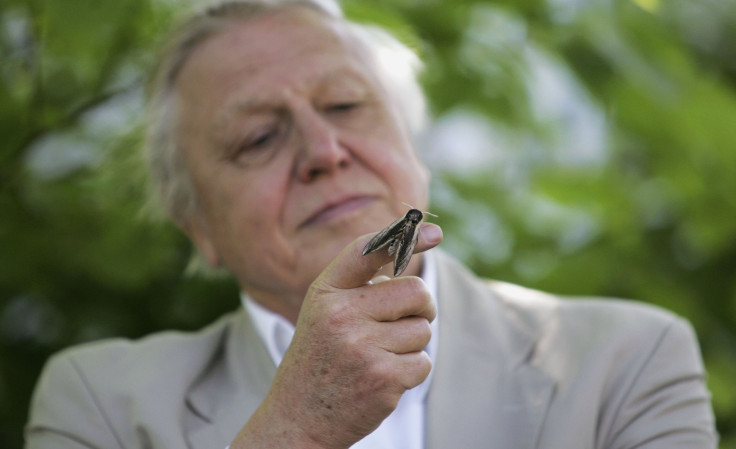Barack Obama Interviews David Attenborough In Unique White House Interaction

Not many people can claim to have been interviewed by a sitting United States president. But not many people are like Sir David Attenborough, the celebrated British naturalist, environmentalist, and the creator and host of a plethora of widely watched nature documentaries for the BBC for over half a century.
It has now emerged that U.S. President Barack Obama invited Attenborough to the White House for a tête-à-tête on the latter’s 89th birthday in May. The conversation, which was recorded, would be broadcast on Sunday, according to BBC.
“I’ve been a huge admirer of your work for a very long time,” Obama told the famed naturalist during the interview, snippets of which are available on the BBC website. “You’ve been a great educator as well as a great naturalist.”
In the interview, Obama and Attenborough -- who has, in the past, accused world leaders of turning a blind eye toward the overwhelming threat posed by climate change -- discussed ways to minimize the impact of global warming.
“I believe if we find ways of generating and storing power from renewable resources we will make the problem with oil and coal disappear,” Attenborough reportedly told Obama, who has made tackling climate change a hallmark of his presidency. “Economically, we’ll wish to use these other methods. If we do that, a huge step will be taken in solving the problems of the Earth.”
The president admitted that the world is “not moving as fast as we need to” to curb the rise in global temperatures, and called for “global solution” to solve the problem.
“Part of what I know from watching your programs, and all the great work you've done, is that these ecosystems are all interconnected. If just one country is doing the right thing but other countries are not, then we're not going to solve the problem,” Obama said.
Anthropogenic climate change and the science behind it remain deeply divisive issues in the U.S., where, according to a Pew survey conducted last year, 48 percent of the people polled still do not consider global warming a major threat. Attenborough said that living in cities far removed from nature might be responsible for this apparent lack of interest and understanding.
“The United Nations tells us that over 50 percent of the human population on the planet are urbanized, which means that to some degree, they are cut off from the natural world,” Attenborough said, when asked if the world could ever “get ahead” of climate-related problems. “[If] they don’t understand about the workings of the natural world, they won’t take the trouble to protect it.
"I think what’s required is an understanding and a gut feeling that the natural world is part of your inheritance. This is the only planet we’ve got and we’ve got to protect it," he added.
Attenborough also called for maintaining a child-like interest in nature. “Kids understand the natural world and it fascinates them,” he said. “So the question is how did you lose it? How did anyone lose interest in nature?”
© Copyright IBTimes 2024. All rights reserved.






















